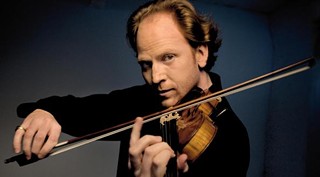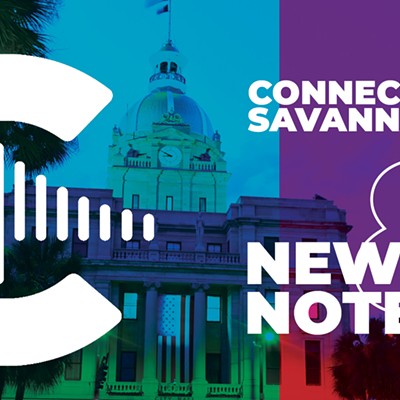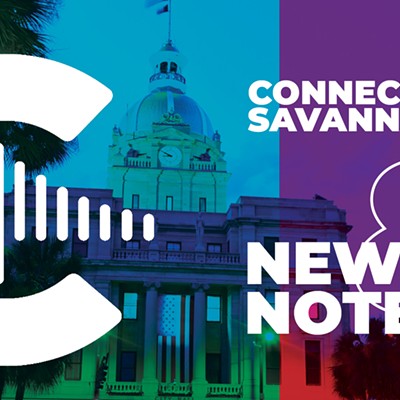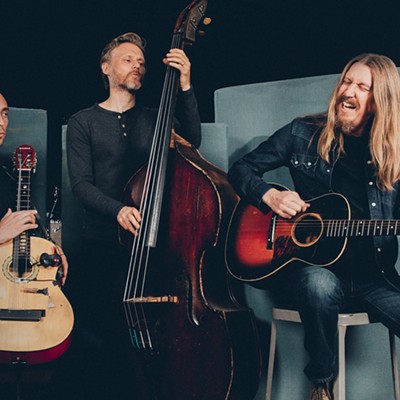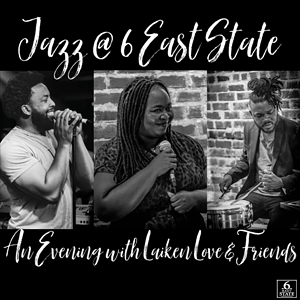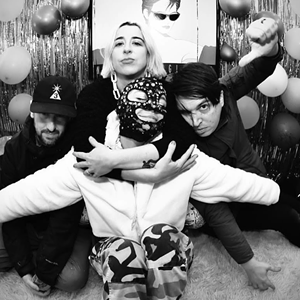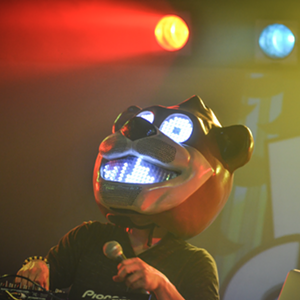One day, perhaps Savannah will consider erecting a statue of Daniel Hope in Ellis Square, right next to the one of Johnny Mercer. For eight years, the British violinist has done as much to enrich the city’s musical landscape as just about anybody.
An internationally renowned soloist and recording artist, Hope is also a born collaborator. In 2003, as a member of the Beaux Arts Trio, Hope was introduced to Rob Gibson, who was just getting the Savannah Music Festival off the ground.
Gibson tapped Hope to be the festival’s Associate Artistic Director, putting him in charge of setting up — pretty much any way he chose — the Sensations concerts in the Telfair Academy’s Eckberg Atrium.
Since Year One, Sensations has perfectly reflected the festival’s eclectic nature — classical musicians, from all over the world, are brought together in small ensembles to perform a wide spectrum of chamber music. Every concert is different (there are five of them this time around).
Of particular importance to him this year is the April 1 Sensations concert, Forbidden Music. A performance of music by Jewish composers banned during the Nazi regime, it will take place at Temple Mickve Israel.
Hope’s wish list for the future includes larger groups of musicians, perhaps a chamber orchestra.
“There’s never enough music,” he laughs, “so far as my life is concerned. I mean we could have wall–to–wall concerts all day, and it would never be enough for me.”
You do so much work around the world, in so many different contexts. What you get specifically out of the Savannah experience?
Daniel Hope: It’s really become like coming home to Savannah. It’s now at a stage where there’s so much warmth that comes, not just from the music, but from the audience. There’s so many people in Savannah that I know, that my friends know, that we’re welcomed back each time we come. Making music in that kind of situation, in those kind of circumstances, for those people, is really such a thrill and a pleasure.
Every year, it’s grown and grown on us, and now my friends all ring me up and say “When can we come back?” It’s the hottest ticket to them, and that makes me really proud. Because it goes back to the vision that Rob had, and all the work we’ve plowed in over these years.
How do you choose the musicians that work with you on the concerts?
Daniel Hope: We have certain of the Sensations musicians that have come every year, like Philip Dukes or Benny Kim. And those are players that I value enormously as musicians and as friends. And the audience also have warmed to them. So the minute Savannah is finished, I get them to block time off in their diaries for the next year.
And then there’s a sort of wish list of people I would love to have, but sometimes we have to wait two or three years because of their schedules. Gabriela Montero is one, Gauiter Capucon is another — two great friends, but I haven’t been able to get them so far because they’re so busy and so popular.
It’s a bit like playing musical chairs with the rest of them, where we might grab them for two or three days and get them to come. And we always hope that when they come, they’ll enjoy it as much as the audiences do, and we’ll get them to come back. Because there are great festivals around, but there are very few where you have the sort of spirit of friendship that goes on. Getting people to come and stay more than just flying in and out and doing a quick visit, that’s what gives the festival a face.
I think that’s what makes Savannah really special is these returning musicians. And you have some that come for the first time and maybe meet other people and start come collaboration. So it’s kind of a breeding ground for new ideas.
Does that surprise you in a way? Being a “continental guy,” for lack of a better phrase, that it’s happening in little old Savannah? Does it make you proud that you helped make that happen?
Daniel Hope: It makes me incredibly proud. The first time Rob Gibson rang me up and said “Would you like to come down to Savannah and help me create some programs?” I thought wow, that’s an interesting offer. I didn’t know much of Savannah.
And then I arrived, and I found this beautiful town. I found people that are completely open to music, and to experiencing music. Rob said “This is going to take us several years to get this to where I see it.” And I think we’ve come leaps and bounds.
Savannah offers so much for people who come from outside. You’ve got the beautiful squares, and a beautiful feeling around the town. You’ve got the sort of quaint Southern charm, and yet you’ve got all these amazing musicians from different walks of like, from different genres — the classical musicians are hearing jazz musicians. The jazz musicians are hearing gospel or zydeco. We all meet at the Morris Center in the evening and are ready to experience new types of music.
I don’t know of really any other festivals like that, in the world.
Do you tailor the pieces in each Sensations concert to the particular strengths of the musicians?
Daniel Hope: There are certain types of repertoire that suit people particularly well. And also, when my friends come I want to give them challenging pieces. At the same time, I also want them to have some time to enjoy themselves and see some of Savannah, and hang out as well.
And sometimes I come up with a program and say “Look, I have to have this piece, and who would like to play it?” And you throw it out there – you toss it like a bone and see who takes it.
Was the Forbidden Music program chosen specifically to be done in a temple?
Daniel Hope: I’ve been playing and researching and recording this music for about 15 years now, and it’s something which is very, very important to me. And deeply moving.
In a sense, it doesn’t need to have the story, ‘cause the music is strong enough.We’ve played concerts before at the temple, and I think it’s a wonderful and very special place to make music in. It just seemed like the right place to host this concert.
And I’m very proud that we have Jeffrey Kahane coming, who’s not only a fabulous pianist but a wonderful conductor, and also somebody who’s done a lot to save and re–visit this music.
Sensations
Savannah Music Festival
Tuesday, March 23: Sensations 1. At 6:15 p.m., Telfair Academy. $47.
Thursday, March 25: Sensations 2. At 6:15 p.m., Telfair Academy. $47.
Sunday, March 28: Sensations 3. At 12:30 p.m., Telfair Academy. $47.
Thursday, April 1: Sensations 4: Forbidden Music. At 6:15 p.m., Temple Mickve Israel. $47.
Sunday, April 3: Sensations 5. At 6:15 p.m., Telfair Academy. $47.
Info: savannahmusicfestival.org

